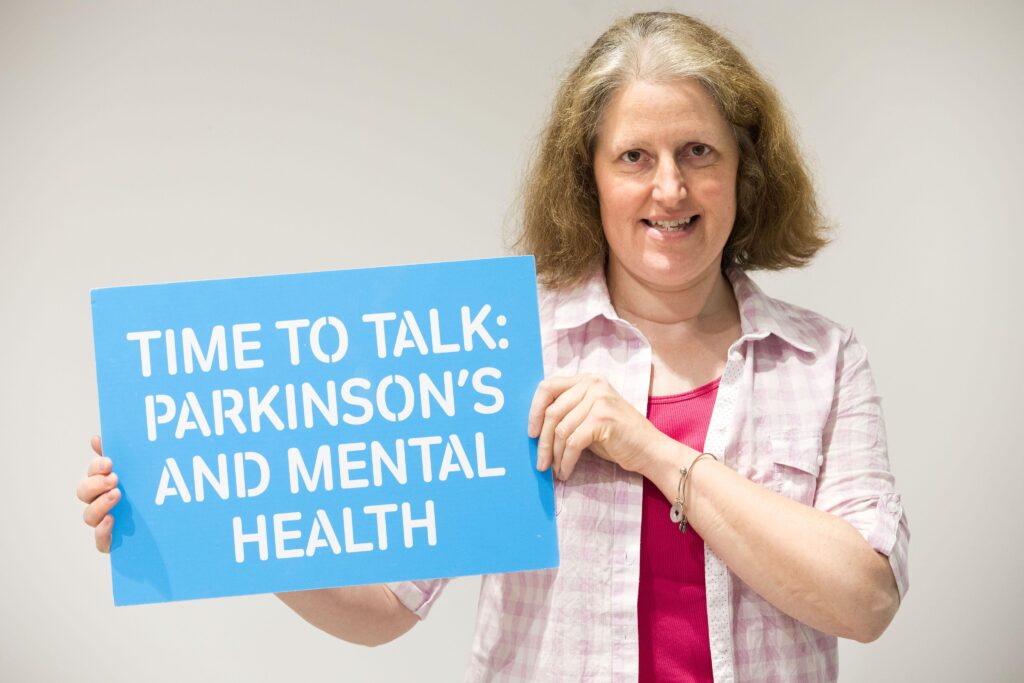We’re delighted to announce a new partnership between Oxford Mindfulness and Parkinson’s UK, with a shared aim of increasing access to mindfulness for those living with Parkinson’s, as well as their family members and carers.
Mindfulness and Parkinson’s: What the Research Says
Mindfulness is more than meditation, it’s a practical way to bring presence and steadiness into everyday life, even in the midst of difficulty. For those living with Parkinson’s, research suggests that mindfulness can be a meaningful support.
Studies have found that a mindfulness programmes designed specifically for people with Parkinson’s led to a significant reduction in anxiety and depression, along with improvements in cognitive function and motor symptoms, including posture, walking, and muscle stiffness. The improvements in cognitive function were not only measurable at the end of the programme but continued at follow-up too.
Another study combining eight trials found that mindfulness and meditation significantly improved motor function (as measured by the standard Unified Parkinson’s Disease Rating Scale) and cognitive ability.
Additional studies show that mindfulness may also help ease some of the non-motor symptoms of Parkinson’s, including mood changes, cognitive impairments, fatigue, and even sleep disturbances and digestive problems. As the research grows, so does the case for making mindfulness more widely available as part of holistic care.
This new collaboration will help us bring those benefits to more people through information, signposting and a short course, offered to the Parkinson’s community.

How Mindfulness Can Support Those Caring for People with Parkinson’s
A Parkinson’s diagnosis affects more than just the individual. Often, family members take on a caring role, navigating emotional, physical, and practical demands that can lead to stress, exhaustion, and a decline in their own well-being.
In one study, over 65% of caregivers reported a moderate to severe caregiving burden. The research also showed that higher levels of mindfulness were linked with lower stress and higher quality of life, particularly in areas like physical resilience and the ability to maintain day-to-day roles. In other words, as caregivers became more mindful, their sense of strain reduced and their ability to cope improved.
Another review found similar results across multiple studies: mindfulness helped reduce anxiety, depression, and overall carer burden in those supporting loved ones with chronic illnesses. While mindfulness doesn’t take away the challenges, it may provide a coping mechanism, helping carers feel less overwhelmed, more supported, and more connected to what matters most.
We’re excited for what this partnership can offer, and we look forward to learning from the community as we continue to explore how mindfulness can support well-being in every aspect of life with Parkinson’s.

Download the Oxford Mindfulness App to view the Parkinson’s section
As part of this collaboration, the Oxford Mindfulness App now includes a dedicated section exploring how mindfulness can support the Parkinson’s community, signposting to resources, guidance and practices tailored for the Parkinson’s community.
References
Arab, M., Keykhosaravani, M., Baghooli, H., & Ostovan, V. R. (2024). A Comparative Study on the Effectiveness of Mindfulness Therapy, Cognitive Rehabilitation Exercises, and Pharmacotherapy in Reducing Non-Motor Symptoms in Parkinson’s Patients. Journal of Advanced Biomedical Sciences.
Christodoulou, D., Reeves, S., Carvalho, N. P., Stellman, J., & Gould, R. L. (2025). A Systematic Review of Third-Wave Therapies to Reduce Distress and Improve Wellbeing and Quality of Life in People with Parkinson’s Disease. Clinical Gerontologist, 1-24.
Dissanayaka, N. N., Idu Jion, F., Pachana, N. A., O’Sullivan, J. D., Marsh, R., Byrne, G. J., & Harnett, P. (2016). Mindfulness for motor and nonmotor dysfunctions in Parkinson’s disease. Parkinson’s Disease, 2016(1), 7109052.
Erdoğan Yüce, G., Döner, A., Bilgin, A., & Muz, G. (2024). The effect of mindfulness‐based interventions on caregiver burden, quality of life and psychological distress in caregivers of adults with chronic diseases: Systematic review and meta‐analysis of randomized controlled trials. Worldviews on Evidence‐Based Nursing, 21(5), 528-541.
Ipek, L., & Gencer, G. Y. G. (2024). Is caregiver burden of patients with amyotrophic lateral sclerosis related to caregivers’ mindfulness, quality of life, and patients’ functional level. Journal of Clinical Neuroscience, 126, 95-100.
Lin, H. W., Tam, K. W., & Kuan, Y. C. (2023). Mindfulness or meditation therapy for Parkinson’s disease: A systematic review and meta‐analysis of randomized controlled trials. European journal of neurology, 30(8), 2250-2260.




